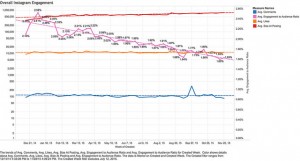The FTC just banned most noncompetes
On Tuesday, the FTC voted to ban all new noncompete clauses and render existing noncompetes unenforceable for most private sector workers.
In 2023, the Federal Trade Commission (FTC) took a strong position on noncompete clauses with a proposed rule that would outright ban employers from using them in employment contracts. After a lengthy period of soliciting and reviewing feedback—which yielded more than 26,000 public comments—the FTC finally voted in favor of its final rule today, which will ban new noncompete clauses and render existing noncompetes unenforceable for most private-sector workers.
The rule, which passed in a 3-2 vote, bans all noncompete clauses as of its effective date, but stops short of prohibiting them entirely for senior executives who have existing noncompetes in place—a group that the FTC defines as less than 1% of the workforce. The rule is slated to take effect within 120 days.
“The decisions that our agency make materially shape and impact the lives of Americans in countless ways,” FTC chair Lina Khan said during an open commission meeting on Tuesday. “This rule in particular could affect workers’ livelihoods and the viability of small businesses and startups.”
Khan highlighted a sampling of public comments from workers who said noncompete clauses had put them out of work or forced them to remain in abusive work environments, along with accounts from entrepreneurs who said noncompetes had impacted their ability to start their own business. “In our American system, we have long viewed open markets and free enterprise as a key bulwark against coercion and centralized control,” Khan added. “It’s been striking, as I go through the record and all of these stories, that they show in a very clear and concrete way how noncompetes restrict this most basic freedom.”
A variety of studies indicate that about one in five workers are subject to noncompete clauses. The position of the FTC and other advocates who oppose noncompete clauses has been that they can stifle competition and depress wages; in its meeting today, the commission estimated that banning noncompetes could increase overall earnings by $400 to $488 billion over a period of 10 years. But the FTC’s initial proposal also highlighted how these clauses can particularly harm low-wage workers, despite the common perception that noncompete clauses are largely used to prevent higher earners or executives from taking a job with a competitor or divulging trade secrets.
“Most of the economy is not tech workers [or] executives,” says Evan Starr, an associate professor at the University of Maryland’s business school who has closely studied the impact of noncompete clauses. “Noncompetes are more common in those jobs, but those jobs just make up less of the workforce.” While he says there is “broad consensus” that noncompete clauses should not apply to low-income workers, many of them tend to be impacted because companies use blanket noncompete clauses that apply to their entire workforce. Even in instances where companies use noncompetes that can’t actually be enforced, Starr points out that workers may still be forced to go to court to fight them.
The rule will almost certainly face legal challenges, which could delay its implementation. Business groups have pushed back on the proposal since it was introduced, arguing it is too broad and could make it more difficult for companies to protect trade secrets. The U.S. Chamber of Commerce has questioned the FTC’s authority in issuing this rule and has stated its intent to sue as early as Wednesday.
Even so, experts say the rule has already made its mark. Since being introduced in January 2023, it has ushered in greater scrutiny of noncompete clauses and, in turn, legislative changes at the state level. Minnesota became the first state to pass a ban on noncompete clauses in over a hundred years. In New York, similar legislation made it to the governor’s desk last year before being vetoed, due to disagreements over its scope. While only a handful of states have sweeping bans in place, several other states have some kind of restrictions around the use of noncompete clauses (usually tied to income level).
“I thought it was a pretty bold step,” Starr says of the initial proposal by the FTC. “We hadn’t had a state pass a ban on noncompetes in 100 years, and then the FTC is all of a sudden proposing an all-out ban on employee noncompetes.” Since last January, the FTC has also brought complaints against multiple companies that the agency determined had used noncompete clauses illegally.
States like California—where noncompete clauses have been barred for more than a century—also offer useful case studies for how this ruling will ultimately affect employers, in spite of the concerns that have been aired by business groups and legal experts. As the FTC pointed out today, employers in those states have been able to use confidentiality agreements and trade-secret law in lieu of noncompetes, to similar effect.
In a recent study, however, Starr actually found that trade secret litigation had held steady and then decreased in states with noncompete restrictions. “Lawyers are saying those other tools are not effective—[that] noncompetes are the most effective because it precludes the worker from leaving in the first place and joining the competitor,” he says. “But [these predictions] don’t seem to be right.”

ABOUT THE AUTHOR
(15)
Report Post







